Investigating Factors Leading to Develop Academic Dishonesty and Cheating Behaviors During Board Examinations in Balochistan, Pakistan
Abstract
This study investigates the pervasive issue of academic dishonesty and cheating behaviors during board examinations in Balochistan, highlighting diverse contributing factors and underscoring the pivotal role of exams in shaping academic paths. The study adopted a quantitative approach, 200 student responses collected through nonprobability random sampling. Using the rational choice theory, this study fills a research gap and advances understanding of academic dishonesty by offering insightful information. Empirical data analysis was utilized to conclude. The research reveals a high incidence of cheating from students with various causes, including the fear of failure, societal expectations, and peer pressure associated with examinations. Notably, stress and anxiety emerge as key predictors of academic dishonesty. Students, facing intense academic pressures, often turn to unethical practices as a coping mechanism. The study underscores the inadvertent encouragement of cheating within the education system, driven by an excessive focus on exam results as the primary measure of success. The findings contribute valuable insights to the academic integrity discourse, advocating for comprehensive strategies to foster a healthier educational system in Balochistan. Recommendations include addressing root causes, promoting a supportive learning environment, fostering open dialogue, and promoting a broader definition of success. formative assessments, post-exam feedback, parental collaboration, and workshops on academic integrity are proposed to create a more supportive and ethical learning environment, enforcing academic honor codes, strict exam monitoring, and efforts to mitigate cheating should extend beyond punitive measures and implement initiatives to reshape perceptions of success, ultimately cultivating a culture of honesty and integrity in education.
References
Al Shbail, M. O., Alshurafat, H., Ananzeh, H., & Al-Msiedeen, J. M. (2022). Dataset of Factors affecting online cheating by accounting students: The relevance of social factors and the fraud triangle model factors. Data in Brief, 40, 107732.
Ali, W., Baloch, N., Faiz, J., Jan, A., Ahmed, M., & Rab, A. (n.d.). The Politics of Teachers’ Associations and its Impact on Students’ Learning Outcomes at Primary and Secondary Level in Balochistan. Politics, 8(02), 2021.
Amzalag, M., Shapira, N., & Dolev, N. (2021). Two sides of the coin: lack of academic integrity in exams during the corona pandemic, students’ and lecturers’ perceptions. Journal of Academic Ethics, 1–21.
Anderman, E. M., & Koenka, A. C. (2017). The relation between academic motivation and cheating. Theory Into Practice, 56(2), 95–102.
Arab, S., & Orfan, S. N. (2023). Perceptions of Afghan EFL undergraduate students about exam cheating. Cogent Arts & Humanities, 10(1), 2215564.
Aslam, R., Niazi, S., & Iqbal, S. (2021). Teachers’ Perceptions on Examination Malpractice at Secondary School Level: A Descriptive Investigation. PAPER INFO ABSTRACT, 5, 181–192.
Bonett, D. G., & Wright, T. A. (2015). Cronbach’s alpha reliability: Interval estimation, hypothesis testing, and sample size planning. Journal of Organizational Behavior, 36(1), 3–15.
Brierley, J. A. (2017). The role of a pragmatist paradigm when adopting mixed methods in behavioural accounting research. International Journal of Behavioural Accounting and Finance, 6(2), 140. https://doi.org/10.1504/ijbaf.2017.10007499
Brooks, A. W., & Schweitzer, M. E. (2011). Can Nervous Nelly negotiate? How anxiety causes negotiators to make low first offers, exit early, and earn less profit. Organizational Behavior and Human Decision Processes, 115(1), 43–54.
Chirumamilla, A., Sindre, G., & Nguyen-Duc, A. (2020). Cheating in e-exams and paper exams: the perceptions of engineering students and teachers in Norway. Assessment & Evaluation in Higher Education, 45(7), 940–957.
Choo, F., & Tan, K. (2023). Abrupt academic dishonesty: Pressure, opportunity, and deterrence. The International Journal of Management Education, 21(2), 100815.
Cochran, J. K., Chamlin, M. B., Wood, P. B., & Sellers, C. S. (1999). Shame, embarrassment, and formal sanction threats: Extending the deterrence/rational choice model to academic dishonesty. Sociological Inquiry, 69(1), 91–105.
Creswell, J. W. (2014). A concise introduction to mixed methods research. SAGE publications.
Creswell, J. W., & Clark, V. L. P. (2017). Designing and conducting mixed methods research. Sage publications.
Creswell, J. W., & Creswell, J. D. (2017). Research design: Qualitative, quantitative, and mixed methods approaches. Sage publications.
Daumiller, M., & Janke, S. (2020). Effects of performance goals and social norms on academic dishonesty in a test. British Journal of Educational Psychology, 90(2), 537–559.
Dendir, S., & Maxwell, R. S. (2020). Cheating in online courses: Evidence from online proctoring. Computers in Human Behavior Reports, 2, 100033.
Dyer, J. M., Pettyjohn, H. C., & Saladin, S. (2020). Academic dishonesty and testing: How student beliefs and test settings impact decisions to cheat.
Eshet, Y. (2023). The plagiarism pandemic: Inspection of academic dishonesty during the COVID-19 outbreak using originality software. Education and Information Technologies, 1–21.
Farahat, A. (2022). Elements of academic integrity in a cross-cultural middle eastern educational system: Saudi Arabia, Egypt, and Jordan case study. International Journal for Educational Integrity, 18(1), 1–18.
Forkuor, J. B., Amarteifio, J., Attoh, D. O., & Buari, M. A. (2019). Students’ perception of cheating and the best time to cheat during examinations. The Urban Review, 51, 424–443.
Ghimire, S. N., Bhattarai, U., & Baral, R. K. (2023). Academic Dishonesty Within Higher Education in Nepal: An Examination of Students’ Exam Cheating. Journal of Academic Ethics, 1–20.
Green, S. L. (2002). Rational choice theory: An overview. Baylor University Faculty Development Seminar on Rational Choice Theory, 1–72.
Hechter, M., & Kanazawa, S. (1997). Sociological rational choice theory. Annual Review of Sociology, 23(1), 191–214.
Iqbal, Z., Anees, M., Khan, R., Ara, I., Begum, S., Rashid, A., & Farooq, H. (2021). Cheating during examinations: Prevalence, consequences, contributing factors and prevention. International Journal of Innovation, Creativity and Change, 15(6), 601–609.
Janke, S., Rudert, S. C., Petersen, Ä., Fritz, T. M., & Daumiller, M. (2021). Cheating in the wake of COVID-19: How dangerous is ad-hoc online testing for academic integrity? Computers and Education Open, 2, 100055.
Krou, M. R., Fong, C. J., & Hoff, M. A. (2021). Achievement motivation and academic dishonesty: A meta-analytic investigation. Educational Psychology Review, 33, 427–458.
Maeda, M. (2019). Exam cheating among Cambodian students: When, how, and why it happens. Compare: A Journal of Comparative and International Education.
Malik, A. A., Hassan, M., Rizwan, M., Mushtaque, I., Lak, T. A., & Hussain, M. (2023). Impact of academic cheating and perceived online learning effectiveness on academic performance during the COVID-19 pandemic among Pakistani students. Frontiers in Psychology, 14, 1124095.
McManus, I. C., Woolf, K., Harrison, D., Tiffin, P. A., Paton, L. W., Cheung, K. Y. F., & Smith, D. T. (2020). Calculated grades, predicted grades, forecasted grades and actual A-level grades: reliability, correlations and predictive validity in medical school applicants, undergraduates, and postgraduates in a time of COVID-19. MedRxiv, 2006–2020.
Muhammad, A., Shaikh, A., Naveed, Q. N., & Qureshi, M. R. N. (2020). Factors affecting academic integrity in E-learning of Saudi Arabian Universities. An investigation using Delphi and AHP. Ieee Access, 8, 16259–16268.
Mukasa, J., Stokes, L., & Mukona, D. M. (2023). Academic dishonesty by students of bioethics at a tertiary institution in Australia: An exploratory study. International Journal for Educational Integrity, 19(1), 1–15.
Mutongoza, B. (2021). Impetuses for Cheating in COVID-19-Induced Online Assessments at A Rural University in South Africa. Proceedings of the 4th International Conference on Advanced Research in Social Sciences, Oxford, UK, 26–28.
Newton, P. M., & Essex, K. (2023). How common is cheating in online exams and did it increase during the COVID-19 pandemic? A Systematic Review. Journal of Academic Ethics, 1–21.
Noorbehbahani, F., Mohammadi, A., & Aminazadeh, M. (2022). A systematic review of research on cheating in online exams from 2010 to 2021. Education and Information Technologies, 27(6), 8413–8460.
Odongo, D. A., Agyemang, E., & Forkuor, J. B. (2021). Innovative approaches to cheating: An exploration of examination cheating techniques among tertiary students. Education Research International, 2021, 1–7.
Perkins, M. (2023). Academic Integrity considerations of AI Large Language Models in the post-pandemic era: ChatGPT and beyond. Journal of University Teaching & Learning Practice, 20(2), 7.
Rahman, M. U., Hamza, A., & Rehman, A. (2023). Factors Affecting Cheating Behavior at Quetta-Pakistan. Journal of Education and Educational Development, 10(1), 139–159.
Rutberg, S., & Bouikidis, C. D. (2018). Focusing on the fundamentals: A simplistic differentiation between qualitative and quantitative research. Nephrology Nursing Journal, 45(2), 209–213.
Sajid Nazir, M., & Shakeel Aslam, M. (2010). Academic dishonesty and perceptions of Pakistani students. International Journal of Educational Management, 24(7), 655–668.
Samir, M. A., Maged, Y., & Atia, A. (2021). Exam cheating detection system with multiple-human pose estimation. 2021 IEEE International Conference on Computing (ICOCO), 236–240.
Scott, J. (2000). Rational choice theory. Understanding Contemporary Society: Theories of the Present, 129, 126–138.
Tibbetts, S. G., & Myers, D. L. (1999). Low self-control, rational choice, and student test cheating. American Journal of Criminal Justice, 23, 179–200.
Tversky, A., & Kahneman, D. (1989). Rational choice and the framing of decisions. In Multiple criteria decision making and risk analysis using microcomputers (pp. 81–126). Springer.
Vučković, D., Peković, S., Blečić, M., & Đoković, R. (2020). Attitudes towards cheating behavior during assessing students᾽ performance: student and teacher perspectives. International Journal for Educational Integrity, 16, 1–28.
Wenzel, K., & Reinhard, M.-A. (2020). Tests and academic cheating: do learning tasks influence cheating by way of negative evaluations? Social Psychology of Education, 23, 721–753.
Yu, S., Assor, A., Yu, H., & Wang, Q. (2023). Autonomy as a potential moral resource: Parenting practices supporting youth need for autonomy negatively predict youth acceptance of academic dishonesty. Learning and Individual Differences, 101, 102245.
Zhao, L., Mao, H., Compton, B. J., Peng, J., Fu, G., Fang, F., Heyman, G. D., & Lee, K. (2022). Academic dishonesty and its relations to peer cheating and culture: A meta-analysis of the perceived peer cheating effect. Educational Research Review, 36, 100455.
Zhao, L., Peng, J., Yang, X., Yan, W., Ke, S., Dong, L. D., Li, Y., Ma, J., & Lee, K. (2023). Effects of honor code reminders on university students’ cheating in unproctored exams: A double-blind randomized controlled field study. Contemporary Educational Psychology, 75, 102213.

This work is licensed under a Creative Commons Attribution-ShareAlike 4.0 International License.
Authors who publish with Jurnal Ilmiah Lingua Idea agree to the following terms:
- Authors retain copyright and grant the journal right of first publication with the work simultaneously licensed under a Creative Commons Attribution License (CC BY-SA 4.0) that allows others to share the work with an acknowledgment of the work's authorship and initial publication in this journal.
- Authors are able to enter into separate, additional contractual arrangements for the non-exclusive distribution of the journal's published version of the work (e.g., post it to an institutional repository or publish it in a book), with an acknowledgment of its initial publication in this journal.
- Authors are permitted and encouraged to post their work online (e.g., in institutional repositories or on their website) prior to and during the submission process, as it can lead to productive exchanges, as well as earlier and greater citation of published work.



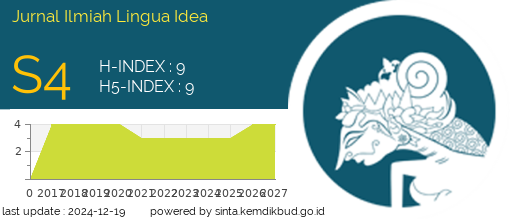


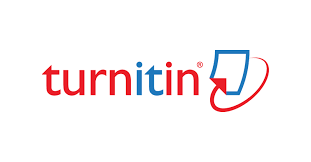














.png)
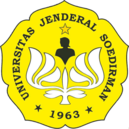
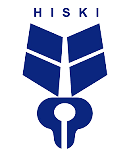
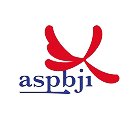
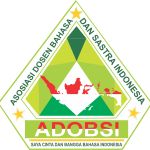
_.png)


